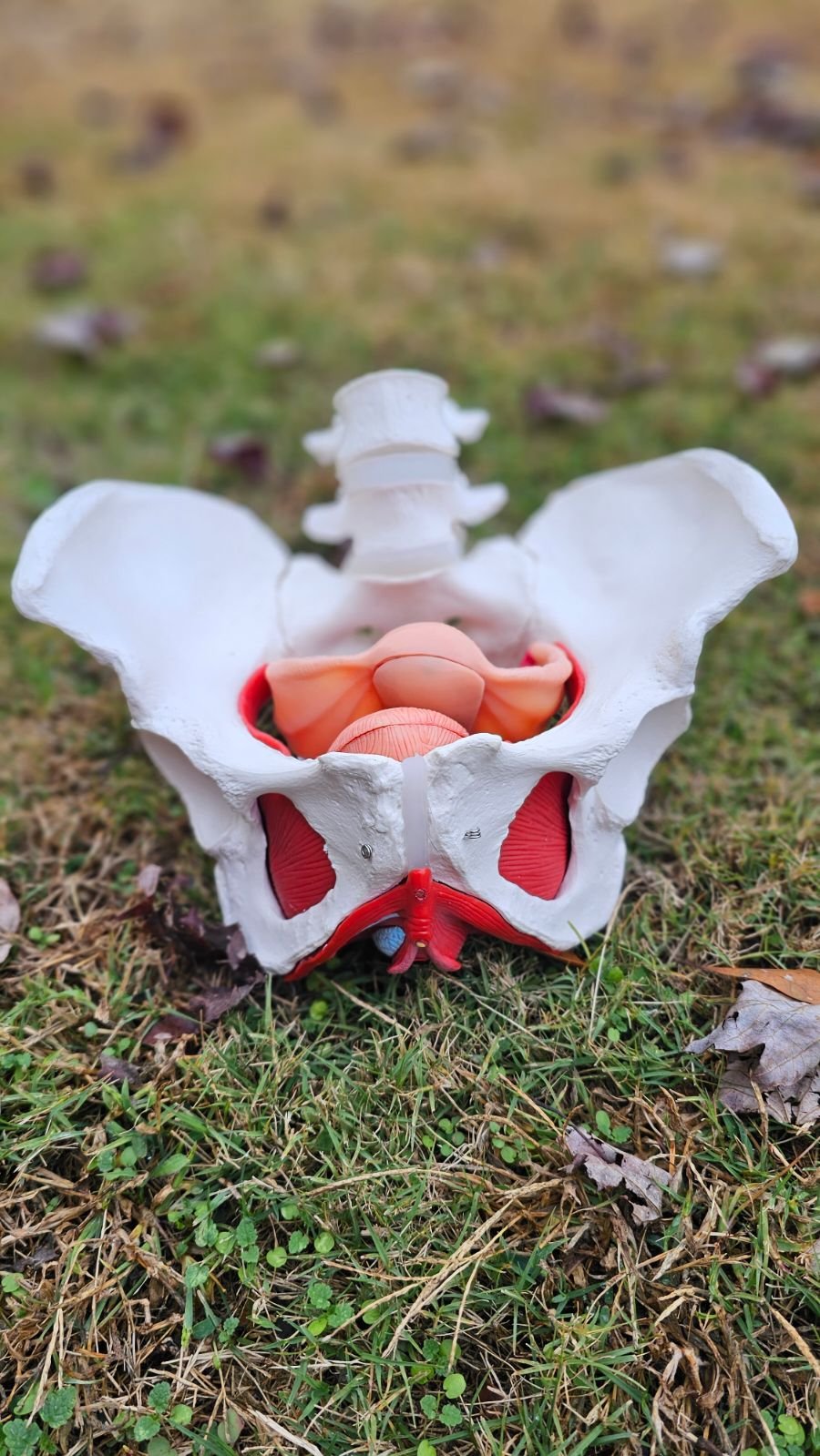
Pelvic Health Matters
Why Does It Matter?

Why Does It Matter?
During pregnancy, the pelvic floor muscles undergo significant changes to support the growing baby, adapt to hormonal shifts, and prepare for childbirth. As the uterus expands, added pressure is placed on these muscles, which can lead to weakness, discomfort, or issues like urinary leakage and prolapse. Additionally, hormonal changes, such as increased relaxin levels, cause the connective tissues to loosen, making the pelvic floor more vulnerable to strain. Whether experiencing symptoms or not, properly engaging and relaxing these muscles during pregnancy can help with core stability, reduce discomfort, and support a smoother recovery postpartum.
After birth, the pelvic floor muscles need time and intentional care to recover from the stress of pregnancy and delivery. Whether you had a vaginal birth or C-section, the pelvic floor can remain weakened, leading to symptoms like incontinence, pelvic pain, or a feeling of heaviness. Scar tissue, abdominal separation (Diastasis Recti), and hormonal shifts can also affect recovery. Proper rehabilitation, including breathwork, gentle core engagement, and progressive strength training, is essential for rebuilding function and preventing long-term issues. Prioritizing pelvic floor health postpartum, helps women regain confidence, strength, and the ability to return to daily activities and exercise safely.
At Momletics, our approach to pelvic floor recovery is rooted in education, intentional movement, and progressive strength training. We focus on rebuilding core and pelvic floor function through breathwork, alignment, and controlled exercises that support healing without unnecessary strain. This community is designed to meet you where you are, whether you're pregnant or newly postpartum.